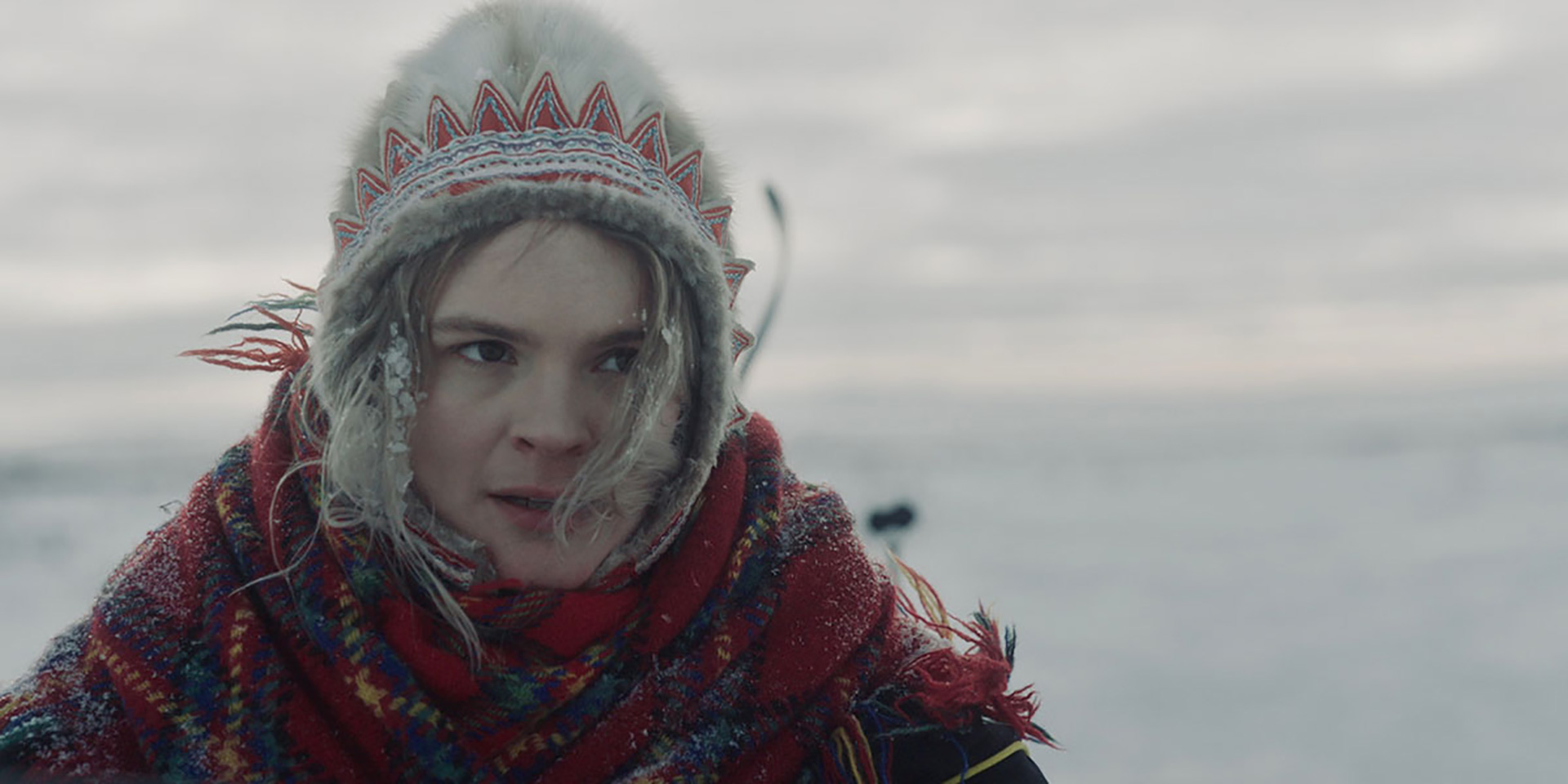
TIFF Review: The Tundra Within Me is a Quiet Drama Highlighting the Clash of Tradition and Modernity
Much like her main character Lena (Risten Anine Kvernmo Gaup), The Tundra Within Me writer-director Sara Margrethe Oskal was also a traditional Sami reindeer herder who took over her father’s flock before leaving it behind to pursue a career in the arts. I can only imagine the whispers she hears behind her own back whenever returning home––the ones Lena endures onscreen cut deep. Because everyone knows who she is and they know what she did. To them she’s akin to a traitor, never opening their hearts to realize that selling her herd didn’t mean she also rejected her culture.
The whole reason Lena is back in Sápmi is because her latest project deals with women herders and the physical / mental challenges they face––not only to be successful, but also respected by the predominantly male vocation. Letting her young son Jonas Ántá visit his grandmother and experience the rural arctic lifestyle of his ancestors after growing up in Oslo is also a factor, but this trip was always supposed to be a residency despite her mother hoping it might become permanent. The cold reception from the other women she asks to interview doesn’t help matters, but the attention from Máhtte (Nils Ailu Kemi) just might.
A large part of Tundra Within Me is highlighting the inevitable clash between tradition and modernity. Lena and the herders have the same goal: to preserve this way of life in an age where it’s financially unviable and threatened by global warning and tourism. Whereas they do so by continuing to complete the work itself, she’s seeking to bridge the gap of understanding with a wider audience through community engagement via her evocatively surreal artwork that collages women’s bodies with reindeer legs and skulls. They (including her own mother) reductively dismiss the work as mockery before shutting her down as an outsider whenever she tries explaining her motives.
It’s tough to change minds when stubborn people create their own truth––not that you can blame the people here who’ve done so to survive. And Lena gets it from all directions. Her mother assumes she hasn’t taught Sami to Jonas Ántá because her idea of giving up herding means giving up everything. So how can Lena expect others to listen? Even when Máhtte proves willing––regardless of his interest being of a sexual nature at first––his proximity to her does more damage to his own reputation than improve hers. His mother (Berit Ánne Oskal Kemi’s Gáren) turns against him too, lording over the fact that his romantic decisions will impact her desire to make him manager of her own herd.
Oskal does a great job putting the tense politics of this ordeal onscreen in an authentic, resonant way, perfectly balancing the present desires of a woman finding potential love with the future dreams of a sustained career in the arts that doesn’t compromise who Lena wants to be as far as having one foot in both worlds. Things obviously get heated when summer winds down and decisions must be made where love and life are concerned. What she wants from both are separated by a seemingly infinite chasm, but none of her actions (or Máhtte’s for that matter) are taken lightly. They simply demand time to fully consider what “returning” truly means.
The scenes in the snowy fields are just as impressive as the emotional pull between these characters. The threat of herds mixing as land becomes scarcer proves to be a real problem that broken-down snowmobiles and pided focus risks exacerbating. Is it wasting money to buy a new sled? Is the work sustainable when help keeps leaving for more lucrative careers elsewhere? Can someone like Lena regret giving it all up while still knowing it was the correct choice for her? And, despite Máhtte’s willingness to do the same, would he only end up resenting her for letting him since herding is what he lives for?
The Tundra Within Me might not be flashy, but its quiet drama captivates as it opens a window onto a culture that deserves recognition––both on international scales, where environmental concerns lie, and a human one, where the desire for progress is too often wrongly confused with denial of tradition. A middle ground does exist. Lena (and, by extension, Oskal) epitomizes it. Here’s a character who embraces her heritage so strongly that she can win a joik contest by singing about her father, or polarize the entire town with paintings of naked women giving birth to the beauty and horrors of an unequal world. It’s a powerful, personal depiction of looking forward without forgetting the past.
The Tundra Within Me premiered at the 2023 Toronto International Film Festival.
Grade: B












































![iFi's GO Bar Kensei Dongle DAC Supports K2HD Technology With Some Samurai Swagger [Updated] iFi's GO Bar Kensei Dongle DAC Supports K2HD Technology With Some Samurai Swagger [Updated]](https://i0.wp.com/cdn.ecoustics.com/db0/wblob/17BA35E873D594/33FF/45A11/QTXOLJR4xDKSNMMk2WlTgjaIlvSgcYpeU1xJzUwIoYs/ifi-go-bar-kensei.jpg?w=768&ssl=1)

























